Pride at FoodCorps: LGBTQ Staff Share Their Stories
In honor of Pride Month, we asked a few LGBTQ staffers at FoodCorps how their identities shape and inform their work.
In honor of Pride Month, we asked a few LGBTQ staffers at FoodCorps how their identities shape and inform their work.
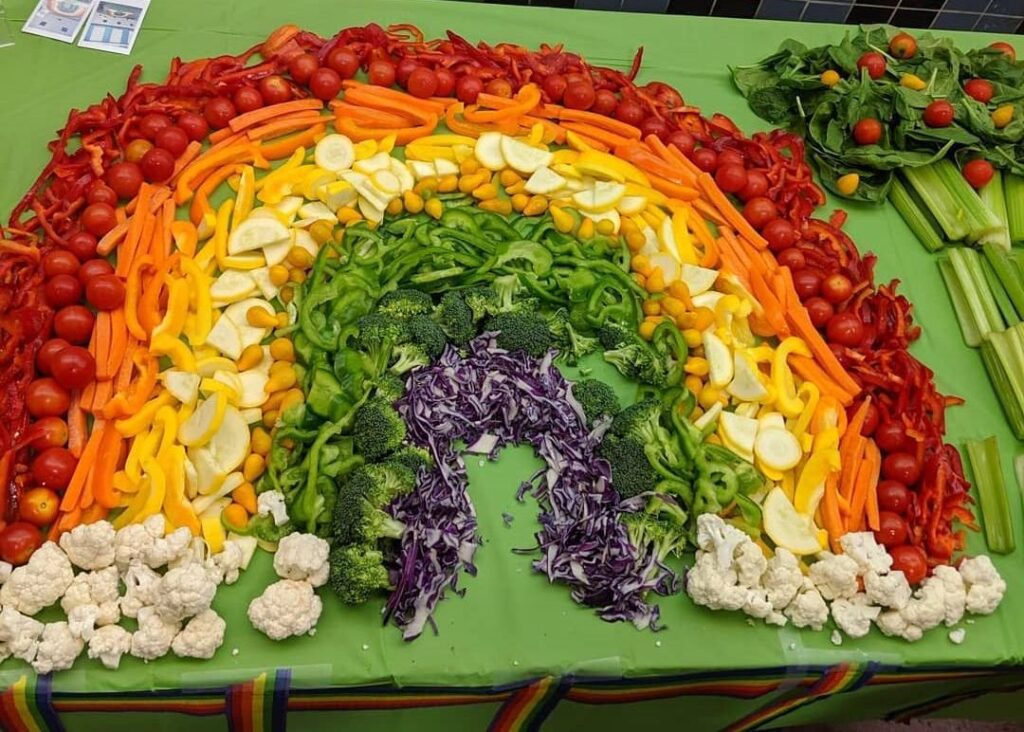
Happy Pride Month! At FoodCorps, we know a diverse team is an innovative team, and we’re a stronger organization when our staff and service members represent a range of unique voices and experiences. In honor of Pride, we asked a few LGBTQ staffers at FoodCorps how their identities shape and inform their work.
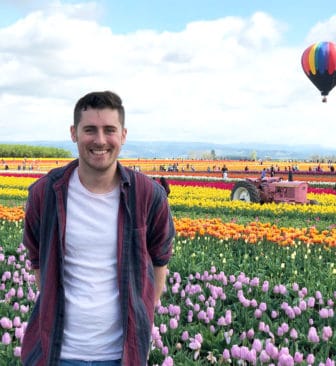
Kane Martin, Recruitment Coordinator & FoodCorps Alum:
I served with FoodCorps directly out of college. I had been out for about five years already, but stepping into this new role sort of felt like coming out all over again. I was nervous about being “too gay” in the classroom and that teachers might not invite me in. I was worried what parents might think. I was nervous about how my supervisors may perceive me.
As I went through my service term, I began to realize that I was shining the most in the classroom when I wasn’t censoring myself. I was making real connections with my coworkers when I felt comfortable showing up as my whole self. That’s when I felt the most fulfilled.
That realization really informed the work I wanted to do after service. As a member of the Talent & Culture team I am able to advocate for work policies and norms that allow people to show up as their authentic self. We have the strongest impact when we allow all of our identities to inform the work we do.
Tiffany McClain, Director of Organizational Equity and Inclusion:
It’s likely that I would have eventually ended up in the nonprofit sector regardless, but the reason I entered the field when I did was because of my desire to contribute to the movement for LGBTQ equality. I spent much of my undergraduate and graduate years studying the history of race and racial injustice in this country and I became frustrated by how easy it was for some people to ignore the contemporary and historical existence of black LGBTQ people.
When opponents of marriage equality said things like, “gay people never had to sit in the back of the bus,” it completely ignored the leadership of LGBTQ African-Americans who had fought for civil rights. People like Bayard Rustin, who was practically the architect of the 1963 March on Washington; James Baldwin, one of the leading social critics and public intellectuals on race during the 1960s; and Pauli Murray, who was arrested for protesting bus segregation in Virginia and passed as a man to the arresting officers! I thought that the most direct way to begin challenge the invisibility of queer black people from political discourse was to get involved myself, which is how I ended up with my first nonprofit job with the American Civil Liberties Union of Alaska and my second with Pride Foundation.
Though I have moved away from LGBTQ-centered work, I will always be grateful for the opportunity to have jobs that allowed me to contribute daily to the advancement of equality in very direct and tangible ways and to enter the sector working for two organizations where it felt safe to bring my full queer black self to the table….most days.
Nathan Spalding, Iowa Program Coordinator & FoodCorps Alum:
Before joining FoodCorps staff as the Iowa Program Coordinator, I spent three formative years as a FoodCorps service member. My first year of service was spent in Willimantic, CT, the suburban center of a town of around 25,000 people. Willimantic was completely new to me; in fact, I’d never even been to New England until I drove there in the middle of the night. In a new community, working in schools for the first time, every day become an evaluation of how much of my identity as a gay man felt safe to weave into service. Even when I relocated to serve in Cedar Rapids, IA, a community I’d neighbored for four years prior, this daily navigation of identity and service continued. Will I jeopardize an important teacher relationship if I interject when asked if I have a girlfriend? Do I interrupt the innocent, ill-informed homophobic comment of a seven-year-old? Is it safe for me to use the shared student/staff bathroom, or will some onlooker harbor that nonsensical misconception of gay men as sexual predators? (It took me six months to use the bathroom at that school). These were the daily obstacles of safety and emotional labor as I navigated my identity in service.
Now, as I manage our program in Iowa, my experience absolutely informs the way I support service members and communities. Perhaps a service member is navigating how much of their identity, if any, they wish to bring to service. Or maybe they’re processing the emotional labor involved with choosing whether or not to interrupt a problematic comment from a student or teacher. It’s now within my sphere of influence to support them as they navigate their own journey of service and identity. My biggest advice to service members is to bring as little or as much of their identity as they deem fit. And if they’re open to finding queer community, trying looking inward to their service community first. More often than not, there are queer people and allies in each of our service communities. There might not be a pride parade running down main street, with queer folks and allies clad in rainbows. But they are there. If you need them, search for them.
Camille Beredjick, Digital Marketing/Communications Manager:
When I came out to myself as bisexual in high school, I quietly decided never to tell anyone else. The messages I heard about LGBTQ people growing up were overwhelmingly negative, and I didn’t think I could be successful — let alone happy — if I came out. More than ten years later, I’ve never been prouder to be wrong: my queerness has shaped my whole world, helped me work with organizations that take equity and inclusion seriously, and led me to my life with my incredible wife. I only wish I could go back in time to tell my teenage self.
Working on the communications side of social justice presents an immense opportunity: to center diverse stories and voices, help shape how FoodCorps talks about our work, and share with others how impactful words can be. Being queer has helped me think more critically about these questions and more; coming-out anxiety aside, I move through the world with a great deal of privilege, and it’s my responsibility to recognize it and proceed thoughtfully.
I’m proud to work at an organization that uplifts the voices of LGBTQ people, people of color, and those who live at the intersections of these and other marginalized identities — but that doesn’t mean we can’t do more. Ally is a verb, too. And sometimes the most important thing you can do as an ally isn’t speaking up, but passing the mic.
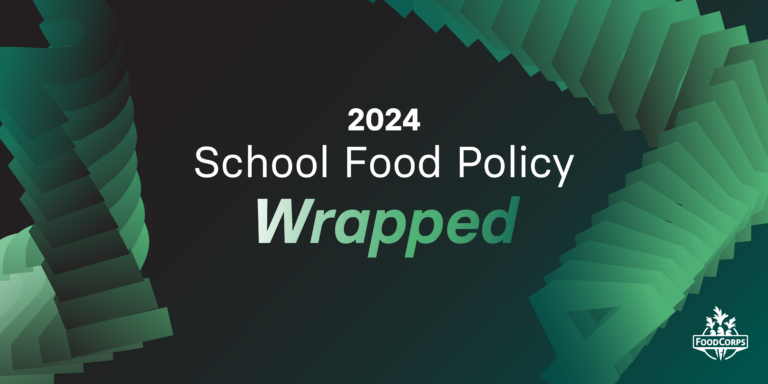
Our 2024 Child Nutrition Policy Year in Review
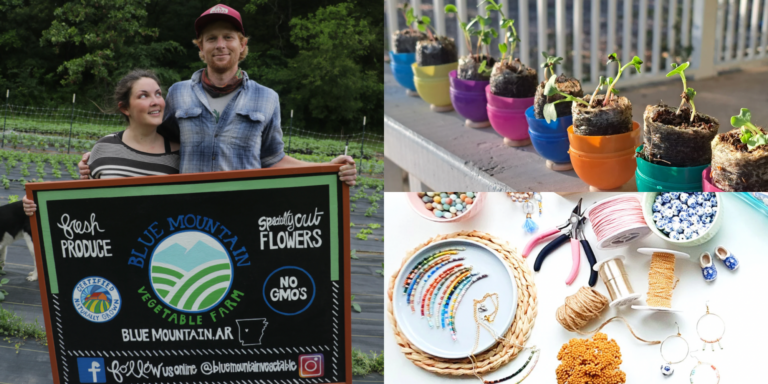
9 Thoughtful Holiday Gifts Made by FoodCorps Alumni
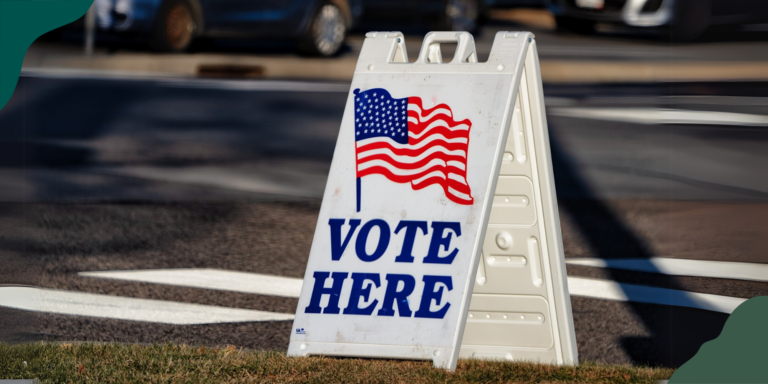
The Policy Brief, Fall 2024: After the Election